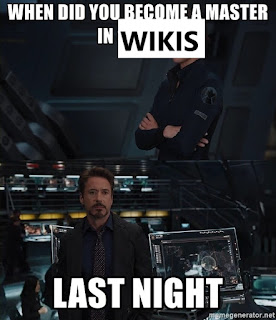Podcasting: Pros and cons of integrating podcasting in Adult Education
"WE ARE MASTERS OF THE UNSAID WORDS, BUT SLAVES OF THOSE WE LET SLIP OUT." - WINSTON CHURCHILL What is podcasting? Podcasting is one of the most exciting and wonderfully disruptive technologies to emerge in recent history. Anybody can get involved, express themselves, exchange ideas. Podcasting is disruptive because it breaks all the rules, and puts the power to communicate into the hands of individuals. The price of admission is some basic audio/visual recording equipment and a desire to communicate (Geoghegan and Klass, p. 2). ESL programs can put the “third space pedagogy” into action when integrating podcasting in the curriculum. Gutiérrez et al. (1999) defined third space pedagogy as "a classroom community of difference that uses multiple mediating tools and makes use of all the spatial, cultural and linguistic resources of its participants" (p. 287). In an ESL classroom, where the Listening, Speaking, Reading and Writing skills are integrated i...
